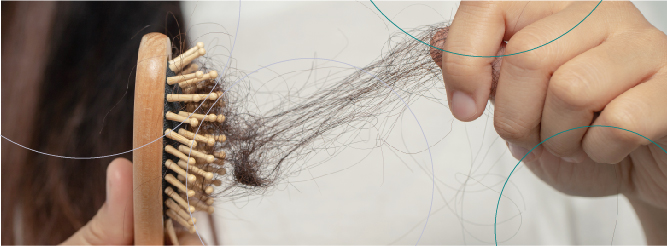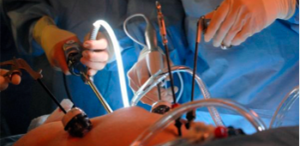
The goal of bariatric surgery is to help patients achieve their weight loss goals and address health concerns that may be hindering their quality of life. Each procedure is different and they can be divided into two categories: restrictive and malabsorptive. The first category includes those procedures that limit the stomach’s food intake, such as the gastric sleeve and the intragastric balloon; while the latter limits the calorie and nutrient absorption the body consumes through the gastric bypass or the duodenal switch.
There are a lot of factors that determine which bariatric surgery is right for each patient, like their medical history, their needs and goals, and the amount of fat that needs to be removed from the body. To know which procedure is right for you, your doctor will go over your specific case and perform an in-person examination in order to create a treatment plan to address your needs. Once it’s established, they’ll go over it with you so that you’re prepared, both mentally and physically, for what your body is about to go through during and after the surgery.
This means talking about the possible complications during or after the surgery. To avoid or prevent them from happening, your doctor will give you a set of instructions that you have to follow, such as improving your eating habits, taking on a physical activity, and removing harming habits that may complicate not only your surgery, but your overall quality of life. However, there are some postoperative complications that may arise even if your surgery went smoothly, like obstruction of stomach, chronic nausea, and ulcers, just to mention a few.
Another complication or side effect is hair loss and while it’s not often mentioned in the long list of complications each bariatric surgery has, it’s important to keep it in mind in case you start experiencing it after your procedure. Many turn to bariatric surgery for shedding extra pounds, not for shedding hair, which is why at LIMARPⓇ, we want to ensure that your postoperative process is carried out smoothly. In the case that you do start experiencing hair loss, our team of doctors, led by Dr. Liza María Pompa González, will create a treatment plan to deal with this condition and ensure that your hair grows back as healthy as possible.
This article will focus on why people experience hair loss after bariatric surgery, some of the causes, and what you can do to prevent it. If you have lingering questions or doubts after reading this entry, we invite you to give us a call and schedule an appointment with one of our doctors.
Bariatric Surgery and Hair Loss
When you’re considering getting any type of bariatric surgery, you expect to lose weight, not hair; in fact, hair loss may not be even a cause of worry. When we think about complications following any kind of procedure, we think about problems that relate to the parts of the body that were worked on or intervened, such as the stomach or the intestines. But hair loss is a known side effect that can present itself after a bariatric surgery, especially in the three months following the procedure.
Why does it happen? There are several causes that explain why some patients might develop hair loss after surgery and the first one we’d like to explain is nutritional deficiency. As we’ve mentioned before, bariatric surgery can limit the amount of calories and nutrients that the body absorbs, and while this helps prevent significant weight gain following the procedure, it can also lead to hair loss.
Following any kind of malabsorptive surgery, your doctor will refer you to a dietitian so that they can provide a plan that will help you meet all your caloric and nutritional needs. However, there have been cases in which patients fail to absorb certain nutrients, such as zinc and iron, that can lead to hair loss. Another 2021 study concluded that these types of bariatric surgeries can lead to decreased levels of copper, essential fatty acid, iron, zinc, and vitamins A, C, folate, and K.
These deficiencies can cause thinning hair, dryness, and brittleness, which can then lead to major hair loss. The same 2021 study suggested that “a life-long vitamin supplementation” is ideal for bariatric patients following a surgery so that they can meet the amount of nutrients that they need and avoid any side effects that can harm their well-being.
Another reason why patients lose their hair after surgery is because of the stress or trauma that comes with this invasive procedure. This stress can cause telogen effluvium, a reversible condition that presents itself after the body goes through a stressful situation and usually appears three months after any type of bariatric surgery. If you develop this condition, it means that your hair follicles go into a resting phase because your body starts “rerouting the nutrients from your hair to your vital organs”.
Telogen effluvium does not cause permanent hair loss and once the “dormant” hair finishes falling off, your body will start producing more hair. Keep in mind that it’s a slow process and it may take up to six months for your follicles to start growing new hair.
Lastly, it’s been proven that bariatric surgery is associated with heightening preexisting skin conditions or developing new ones. One of those conditions is scalp psoriasis and it can cause temporary hair loss if it’s not treated correctly. There are many treatments for psoriasis and it’s important that you contact your dermatologist so that they can prescribe the correct products or medication.
These are some of the factors that can cause hair loss after a bariatric surgery and as we’ve mentioned, the loss of hair should only be temporary. If it persists more than six months after your procedure, contact your doctor so that they can order some tests to determine if there’s another condition that’s provoking the postoperative hair loss.
Hair Loss Prevention
While preventing hair loss in its totality may be impossible after bariatric surgery, there are several methods you can try to diminish the amount of hair you lose. Keep in mind that everyone’s body responds differently to any kind of treatment and to contact your doctor so that they can create a specific plan for you.
Here are some of the steps you can take:
- Make sure to follow the nutritional plan that was given to you after your surgery in order to meet your nutritional needs.
- Ask your doctor if they recommend nutritional supplements, as too many supplements can also cause hair loss. They will likely order some blood tests to check for any deficiencies and prescribe the necessary supplements, which can be of zinc, iron, or vitamin A.
- Be mindful of your recovery process. Hair loss can also be caused by stress and avoiding any situation that causes unnecessary amounts of it can prevent your hair from falling off.
Contact Us to Learn More
If you’re experiencing hair loss after a bariatric surgery, schedule an appointment with one of our doctors. We can help determine the right treatment for you. Contact us online anytime or give us a call at (619) 373-0229.


